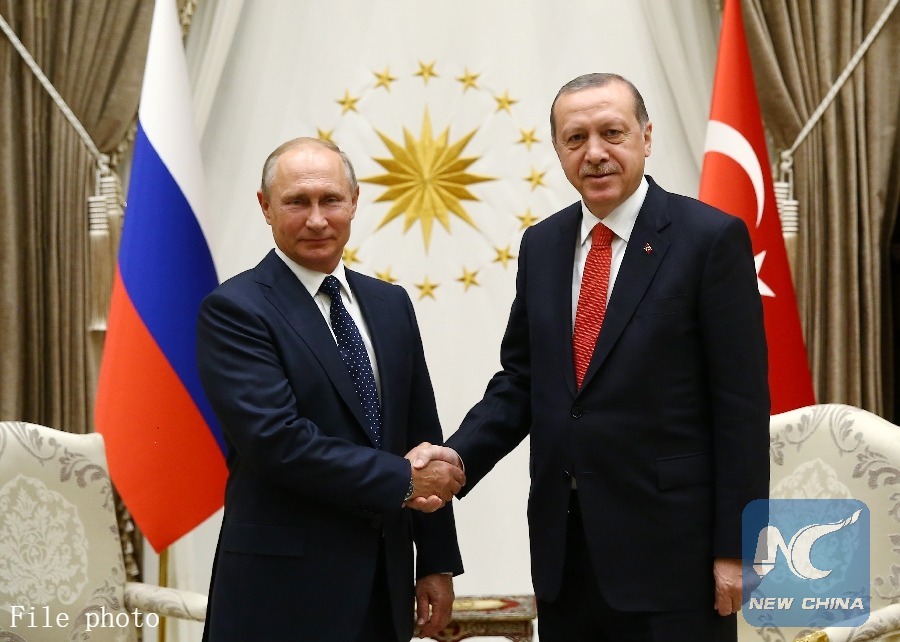Can Russia-Turkey agreement save Idlib?
- By Sajjad Malik
 0 Comment(s)
0 Comment(s) Print
Print E-mail China.org.cn, September 23, 2018
E-mail China.org.cn, September 23, 2018

Russia and Turkey have signed a deal seeking to avoid further bloodbath in Idlib, last rebel bastion in the northwest corner of war-torn Syria. However, the situation is still tense as the region is in crosshairs of Bashar al-Assad's security forces keen to restore their writ over the entire country.
Idlib is home to nearly three million people, and the agreement stipulates that only civilians and moderate, and peaceful, opposition forces can continue to stay in the volatile region, not the rebels.
The deal also aims to create, by October 15, a 15-20 kilometers demilitarized zone jointly manned by Russian and Turkish security personnel.
The sticking point is that all terrorist groups will have to lay down their arms preparatory to being cleared from the region. This may not be easy, even though the rebels will be allowed to withdraw peacefully from civilians areas in order to protect non-combatants during any continued fighting.
Most of the fighters are part of Hay'et Tahrir al-Sham (HTS) – a reincarnation of fierce al-Nusra Front once affiliated with al-Qaeda. To separate the radical fighters from the civilians is Turkey's responsibility and it will surely be the litmus test of the entire agreement.
The deal has been welcomed as a breakthrough by residents of Idlib as well as the international community. However, experts have been left guessing as to whether the Syrian government will abide by it, or will continue to selectively pound the affected area.
Already, dozens of people have been killed due to air raids since the start of September. Yet, the threat of an immediate full-scale assault to take over the region by evicting the militants has dwindled, making life a somewhat safer for civilians living side by side with the militants.
The Sochi agreement has Russia and Turkey as guarantors. Although they have been on different sides of the civil war, they do have a stake in calming down the situation. For example, the deal will help to secure a highway leading to Hmeimin airbase operated by Russia.
There are also chances that another key road – called the M5 – will be opened for traffic. It links Damascus with Aleppo and onwards, with roads leading to Turkey and on into Europe.
Turkey will be saved from the potential influx of thousands of refugees forced by fighting in Idlib to flee across the border. Ankara will also be able to strengthen its control over moderate fighters and groups opposing the Assad government to fortify its bargaining powers in the final peace process.
Syria has been in the grip of war since 2011, leaving more than 350,000 people dead. The intensity of fighting has diminished and the possibility of regime change has also been much reduced. The truth is that realities on the ground have drastically changed after Russia got actively involved in 2015.
The military side of the conflict has produced desired results for Russia and its protégé, but the political endgame has not yet started. The current phase is characterized by a forced peace, as most of militants and moderates opposing Assad have been beaten. Yet, the situation can change.
The presence and control of Kurdish forces over a vast tract in Syria and their military prowess backed by the U.S. can trigger a new phase of fighting among different stakeholders. To avoid any such eventuality, the political process should be expedited.
Apparently, there are seeds of yet another protracted conflict, however. The presence of Iran and security threats to Israel can further complicate the efforts being made for Syrian stability.
The possibility of a chemical weapons attack in Idlib has also long been feared. Such an attack would surely draw an angry response from Washington. There can also be unforeseen development – like the shooting down of a Russia plane for which it blames Israel.
So, the Sochi agreement should be fully respected and implemented, as it has created a tiny window of hope and opportunity.
Turkey and Russia are also trying to move forward with the Astana process to achieve a political solution. Their efforts to save Idlib from any catastrophe can help to play a more proactive role in the final peacemaking.
Sajjad Malik is a columnist with China.org.cn. For more information please visit:
http://www.keyanhelp.cn/opinion/SajjadMalik.htm
Opinion articles reflect the views of their authors, not necessarily those of China.org.cn.





